As a new parent, I know how overwhelming it can be to navigate the world of baby products. One product that has been around for centuries, but has recently gained popularity, is gripe water. Gripe water is a liquid supplement marketed to parents as a treatment to ease gas, colic, hiccups, and stomach upsets in babies.
Most commercially available gripe water contains various ingredients, including water, baking soda, and herbs like fennel, ginger, chamomile, or lemon balm. Some products may contain charcoal or sugar as well. While there is no scientific evidence that gripe water does soothe troubled little tummies, many parents swear by it and have been using it for generations.
It’s important to note that not all gripe water products are created equal, and some may contain ingredients that are not safe for babies. As with any new product, it’s essential to do your research and consult your pediatrician before giving gripe water to your baby. In this article, we will explore the history and uses of gripe water and any potential risks associated with using it.
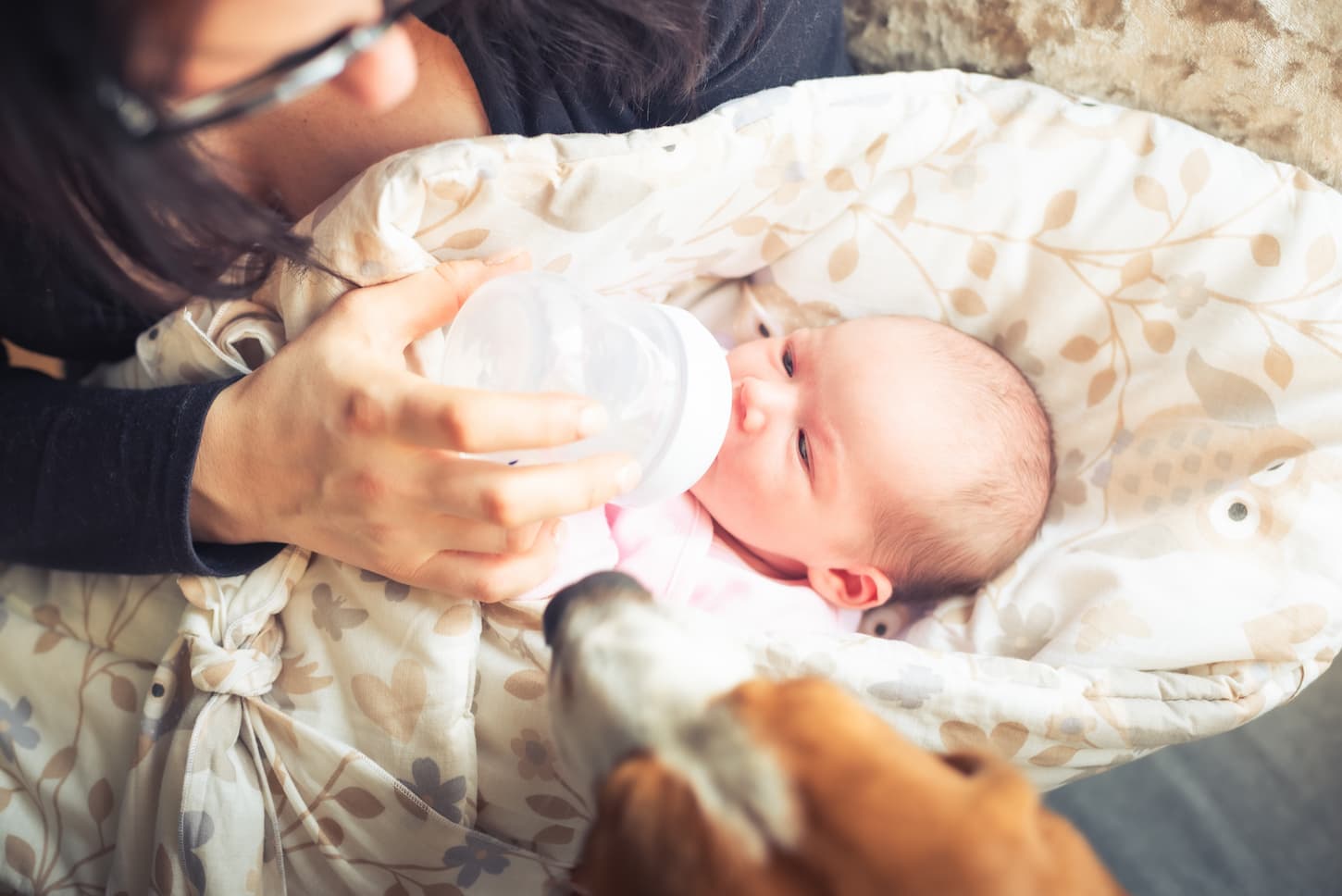
What is Gripe Water?
Gripe water is an herbal liquid supplement that claims to ease babies’ gas pain, general stomach problems, teething pain, hiccups, and colic.
History of Gripe Water
William Woodward, a pharmacist in the mid-1850s, invented gripe water. He invented and tried the miracle remedy to combat fen fever (malaria) among babies. Doctors noted that gripe water was not limited to treating malaria as time passed. The liquid solution also seemed effective in soothing the babies and relieving gas problems.
It was originally made with a combination of alcohol and herbs, but the alcohol was eventually removed due to concerns about its effects on infants.
How Gripe Water is Made
The composition of gripe water varies by brand. Originally gripe water was a mixture of alcohol, sugar, sodium bicarbonate, and dill oil. Today, gripe water brands are usually alcohol-free. It’s a mix of sodium bicarbonate and a mixture of herbs steeped in water, filtered, and packaged for sale.
The process of making gripe water can also vary depending on the manufacturer. Some companies use a boiling method to extract the active ingredients from the herbs, while others use a cold infusion method. The herbs are typically steeped in water for several hours or days, and then the liquid is strained and mixed with other ingredients.
The usual herbs that make gripe water are some combination of fennel, ginger, chamomile, dill, lemon balm, and peppermint.
How Does Gripe Water Work?
Gripe water is a natural supplement that can help relieve stomach discomfort in babies, although it is not FDA-approved as a medicine. It contains various herbs, such as fennel, ginger, and chamomile, used for centuries to treat digestive issues.
When a baby experiences gas, colic, hiccups, or general fussiness, it can be due to trapped air in their stomach. Gripe water helps to settle the stomach by relieving gas buildup. The herbs in gripe water have anti-inflammatory properties that can help soothe the digestive tract and reduce inflammation.
- Fennel, one of the main ingredients in gripe water, has effectively reduced colic symptoms in babies. It works by relaxing the muscles in the digestive tract, which can help relieve gas and bloating.
- Ginger, another common ingredient in gripe water, has been used for centuries to treat nausea and vomiting. It can help reduce inflammation in the digestive tract and calm an upset stomach.
- Chamomile is another herb that is commonly found in gripe water. It has a calming effect on the body and can help reduce anxiety and stress. This can be particularly helpful for babies experiencing discomfort due to teething or other issues.
Gripe water is a safe and natural way to help soothe a baby’s upset stomach. However, it is important to note that there is limited scientific evidence to support the effectiveness of gripe water. It is always a good idea to talk to your pediatrician before giving your baby any new supplement or medication.
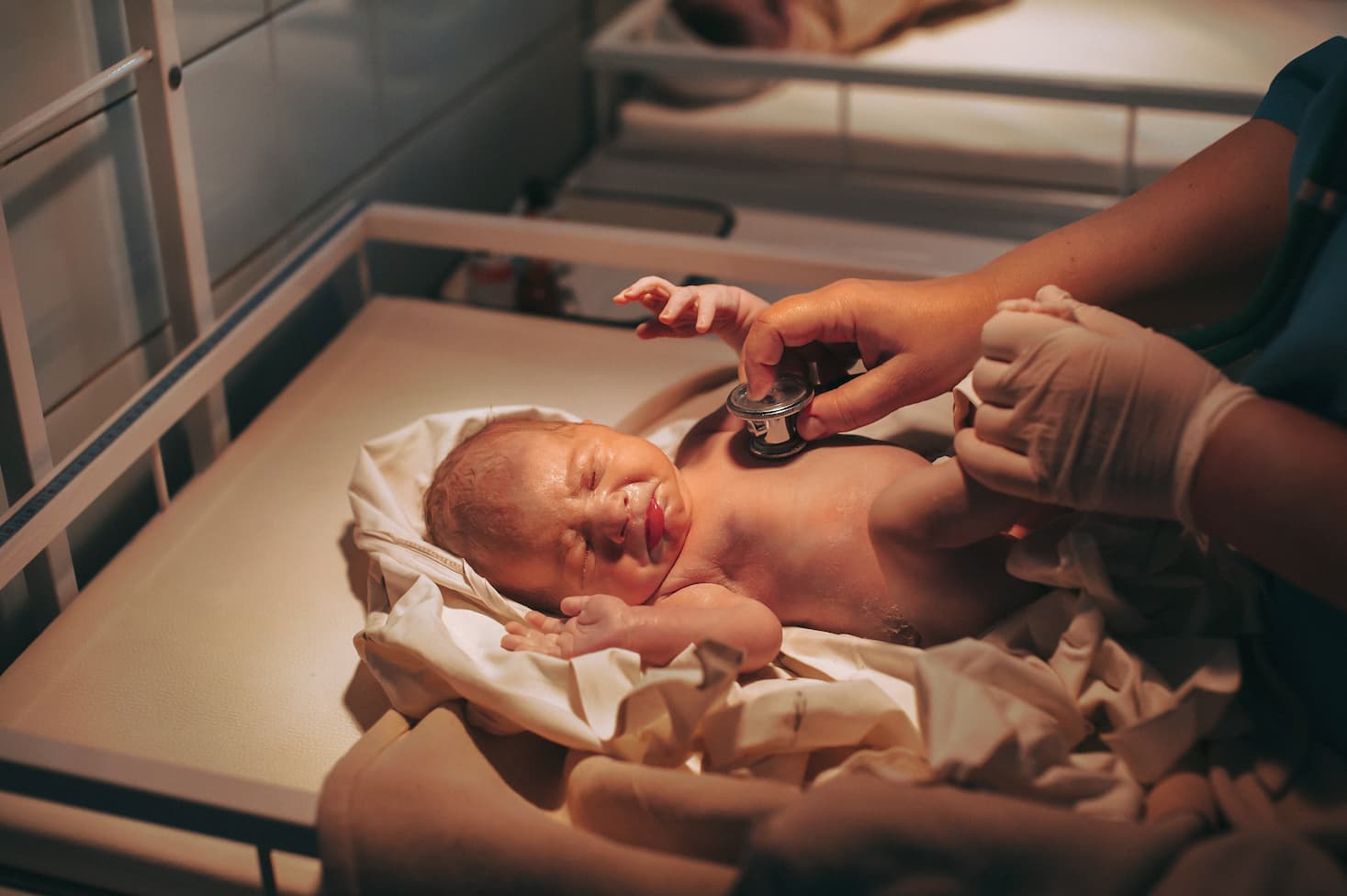
Benefits of Gripe Water
As a parent, you want your baby to be happy and healthy. One product that has gained popularity in recent years is gripe water. Here are some of the potential benefits of using gripe water for your baby.
Note: Please do not let your baby cry intensely for too long. If they cry often, please take them to a pediatrician to rule out any major problems.
Relief of Colic and Gas
One of gripe water’s most commonly cited benefits is its ability to relieve colic and gas in babies. While more research is needed to confirm these claims, some parents have reported that gripe water has helped their babies feel more comfortable and less fussy.
Colic can happen when an infant hits two to three weeks of age and can come and go up to four months. While doctors do not know the exact cause of colic, there have been speculations that some babies can easily get stressed with their environment causing them to cry. This is combined with gas pain.
People who use gripe water often believe colic is caused by gas pain or an upset stomach. They often use it to ease and relieve discomfort that causes the baby to cry.
The mix of herbs and sodium bicarbonate is used to neutralize stomach acid, which aids the baby’s ability to absorb nutrients and break down and fight infections. In addition, some gripe water formulas have activated charcoal which binds gas bubbles, breaks them down, and helps the impurities pass through the digestive system.
Soothing Effect on Babies
Babies often fuss due to discomfort. Passing gas can be difficult for babies in their first few weeks because their digestive system is still developing. Gripe water is often used to help soothe infant gas pains and aid the passing of gas.
It’s not just the discomfort in the tummy that gripe water can help. There are claims that it also helps relieve gas pressure that has been building up due to hiccups, which can cause discomfort for a child.
In addition, gripe water consists of herbs known to ease nausea and discomfort, such as fennel and ginger.
Gripe water is also believed to have a soothing effect on babies. This may be because many brands of gripe water contain herbs like fennel, ginger, and chamomile, which are known for their calming properties. Additionally, the sweet taste of gripe water may be comforting to babies.
Helps with Teething Pain
Besides its potential for relieving colic and gas, gripe water is also marketed as a remedy for teething pain. While there is not much hard evidence to support this claim, some parents have reported that giving their babies gripe water has helped ease their discomfort during teething.
Potential for Improving Sleep
Some parents have reported that gripe water has helped their babies sleep better at night. While this may be due to the soothing effect of gripe water, more research is needed to confirm this claim.
Since the water sometimes includes herbs like chamomile, an herb used by adults with sleeping problems, the effect of having better sleep might stem from the herbs. It’s also possible that the baby has just tired themselves out after crying so much that the exhaustion knocked them out once they got comfortable enough to sleep.
Overall, while there is not much hard evidence to support the use of gripe water, many parents have reported that it has helped their babies feel more comfortable and less fussy. If you are considering using gripe water for your baby, talk to your pediatrician first to ensure that it is safe and appropriate for your child.
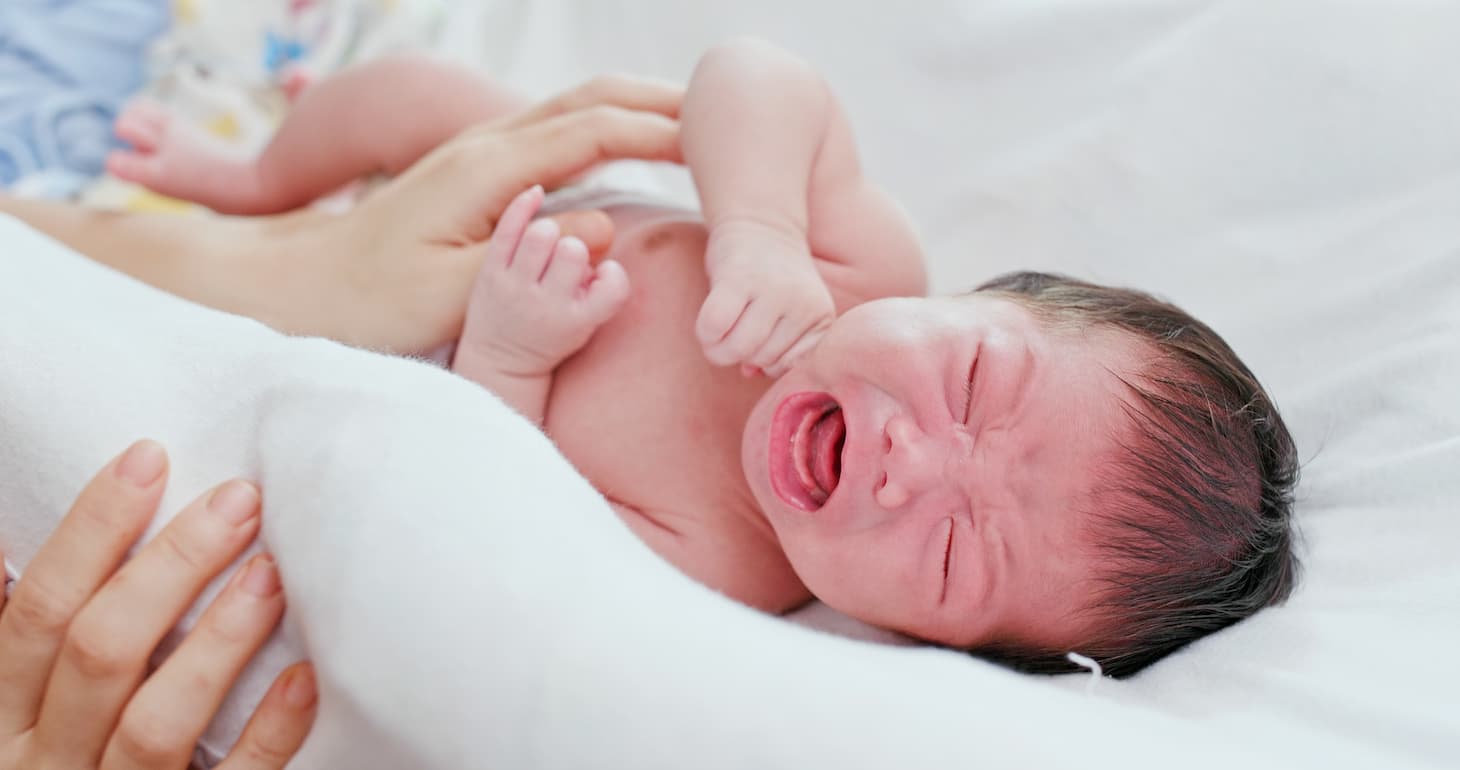
Risks and Side Effects of Gripe Water
As with any medication or supplement, knowing the potential risks and side effects of using gripe water for your baby is important. Here are some important considerations:
Lack of scientific evidence for its effectiveness
Sadly, the effectiveness of gripe water is largely unproven. For example, one study states that 64% of mothers and babies who participated in a study for gripe water said that their children did not stop fussing despite taking a dose of gripe water.
However, some parents still stand by gripe water’s effectiveness and recommend it.
Due to a lack of standardization, many health professionals will not recommend gripe water. So, parents should consider asking their baby’s pediatrician if they can have their baby start gripe water. If not, then ask for alternatives for an upset tummy.
While many parents swear by gripe water as a remedy for colic and other digestive issues in babies, little scientific evidence supports its effectiveness. A review of studies on gripe water found insufficient evidence to recommend its use for colic or other gastrointestinal problems in infants.
Allergic Reactions
While gripe water isn’t likely to cause an allergic reaction, as with any new food or drink you introduce to your little one, you should still look out for symptoms of an allergy such as hives, itchiness, watery eyes, vomiting, or diarrhea. Call your doctor if you see any of these signs in your baby.
Safety and Side Effects
First and foremost, parents need approval from their baby’s pediatrician to use gripe water. If they give the okay, they might recommend brands for parents to try. They can use it even before a baby has tummy issues, so consult the baby’s doctor at the next routine checkup.
Now, gripe water may cause some side effects due to the ingredients being foreign to the baby, so observe their reaction to gripe water.
Gripe water with sucrose may harm a baby’s gums or emerging teeth, so it’s also a good idea to look at the ingredients used in the brand we decide to buy. Watch emerging (erupting) teeth for any signs of damage from the sucrose (sugar).
Possible Contaminants
One of the potential risks of using gripe water is the possibility of contamination. Some gripe water products have been found to contain harmful substances like alcohol, sugar, and even bacteria. It’s important to choose a reputable brand and to check the ingredients carefully before giving it to your baby.
Overuse of Gripe Water
Gripe water is a common remedy for babies’ colic and other digestive issues. While it is generally safe when used as directed, some potential risks are associated with overuse. For example, gripe water that contains sodium bicarbonate can cause milk-alkali syndrome if given continuously and in large doses. Milk-alkali syndrome is a condition marked by too much calcium in the blood, which can lead to serious health problems.
If you are considering using gripe water for your baby, it is important to talk to your doctor first. They can help you determine if gripe water is right for your baby and give you specific instructions on using it safely.
Alternative Remedies for Colic and Gas
Swaddling a baby in a warm blanket and rocking them back and forth might help soothe them. Parents can even include soothing background sounds for them, like light, calming music, or talk to them.
Other remedies might be better than gripe water. Parents can ask their doctor if they don’t want to use gripe water on their infant or are uncomfortable with that idea.
Colic may be due to stress, so a change of environment might be a good idea. For example, if the baby is around six months of age, parents can carry them around the house or go for a short walk using a baby carrier or stroller. A warm bath and a baby swing may help the child.
Sometimes, it might be related to breast milk. A mother should consider changing her diet, but make sure to do so with the advice and approval of a healthcare professional.
If the baby is bottle-fed, consider using a bottle with an anti-colic insert. These bottles lessen the amount of air the baby swallows and reduce gas intake. Parents can gently rub their baby’s tummy in circular motions to help push out the gas from their system.
There are several alternatives to gripe water, so parents shouldn’t worry if they’re uncomfortable giving it to their child or If the doctor tells them not to.
How to Use Gripe Water
Introducing new solutions to a baby other than a milk formula or their mother’s milk might be intimidating. Here are some helpful tips for introducing gripe water to your baby.
Dosage
It is important to follow the dosage instructions on the gripe water packaging. Generally, giving infants 5 milliliters of gripe water up to six times a day is recommended for infants. However, it is always best to consult a pediatrician before administering medication to your baby.
Here is what some packages say.
- Babies from 2-6 weeks old: parents can give them 1 mL up to 15 times daily.
- At 6-10 weeks, babies can take up to 2 mL up to 15 times daily.
- Babies 10 weeks to 6 months old can have 5ml up to 6 times a day.
Check package instructions for differences in dosage or consult a pediatrician.
When to Use Gripe Water
Gripe water can relieve symptoms of colic, gas, hiccups, and teething discomfort. It is important to note that gripe water should not be used to cure any underlying medical condition. If your baby is experiencing severe symptoms or is not improving with gripe water, consult a healthcare professional.
How to Administer Gripe Water
There are a few ways to administer gripe water to your baby. Using the no-spill syringe provided with the gripe water or a dropper is recommended to give the liquid directly into your baby’s mouth. Alternatively, you can use a slow-flow nipple on a bottle to feed your baby the gripe water.
When administering the gripe water, dispense the liquid slowly toward the side of your baby’s mouth or inner cheek, a few drops at a time, allowing your baby to swallow after each drop. It is important not to dilute the gripe water in any other liquid, including water or milk.
It is also important to store gripe water at room temperature and to check the expiration date before administering it to your baby.
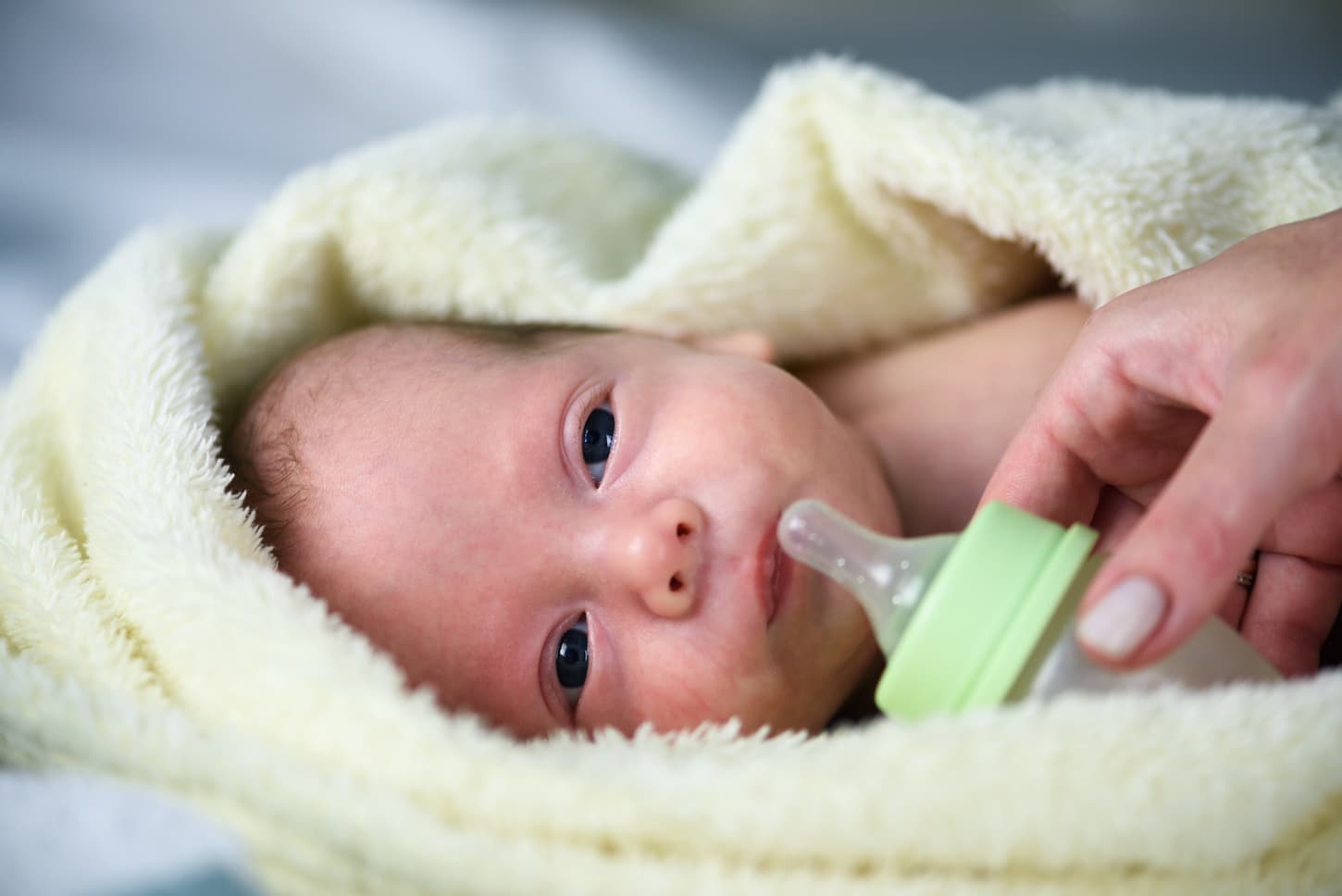
Frequently Asked Questions about Gripe Water
This article is dedicated to helping you understand and have the right information. Next up, let’s answer some FAQs. If we haven’t answered your question yet, we hope to do so here! If we miss your question, please use our contact us page to let us know. We’ll do our best to respond directly to your emailed question – and update this article so that other readers get their answers, too.
Is Gripe Water Safe for Newborns?
As a parent, I understand the importance of ensuring the safety of my newborn. When it comes to gripe water, there are mixed opinions on its safety for infants. Some pediatricians note that gripe water is generally considered safe, but opting for alcohol-and-sugar-free formulations is best.
However, the Food and Drug Administration (FDA) has not approved gripe water.
It’s important to keep an open eye for signs of an allergic reaction if you give your infant gripe water. Allergy symptoms may include difficulty breathing, hives, and swelling of the face, lips, or tongue. If you notice these symptoms, stop using gripe water immediately and seek medical attention.
Additionally, some parents notice that their babies seem drowsier after a dose of gripe water. While this may be a side effect of the ingredients in the gripe water, it’s important to monitor your baby’s behavior and talk to your pediatrician if you have any concerns.
While gripe water may be safe for some infants, it’s important to use caution and opt for alcohol-and-sugar-free formulations. Keep an eye out for signs of an allergic reaction and monitor your baby’s behavior after a dose of gripe water. As always, it’s best to consult your pediatrician before trying new remedies for your baby’s colic or fussiness.
Does Gripe Water Help Instantly?
Some babies sleep a few minutes after taking their first gripe water dose. However, there is not much proof of the effectiveness of the water. So, it is hard to say whether gripe water is effective immediately or not.
You must see if it helps your baby and how quickly it works for them.
How Much Gripe Water Can a Newborn Have?
When giving gripe water to a newborn, following the recommended dosage guidelines is important. The amount of safe gripe water for a newborn depends on their age and weight, as well as the brand of the gripe water.
Please refer to the dosage section of this article for what some packages say is a safe dosage based on age.
It’s important to note that you should never give your baby more gripe water than recommended. Giving too much gripe water can lead to an upset stomach, diarrhea, and other digestive issues.
Always consult your baby’s healthcare professional before giving them any medication or supplement.
In addition to following the recommended dosage guidelines, paying attention to your baby’s response to the gripe water is important. If your baby seems to be experiencing any negative side effects, such as increased fussiness or vomiting, stop giving them gripe water and consult their healthcare professional.
Overall, gripe water can be a helpful tool for relieving colic, gas, and other digestive issues in newborns. However, using it responsibly and following the recommended dosage guidelines is important to ensure your baby’s safety and well-being.
Is Gripe Water Safe for Babies and Toddlers?
As a parent, you want to ensure that anything you give your baby or toddler is safe and effective. Gripe water is a popular remedy for colic and other digestive issues, but is it safe to use?
According to WebMD, gripe water is considered an herbal remedy not approved by the Food and Drug Administration (FDA). While many parents swear by it, there is no proof that it works to relieve colic or other digestive issues.
It is important to note that gripe water is not recommended for babies younger than 1 month. The digestive tract is sensitive and still developing at this age, and introducing anything other than breast milk or formula could cause harm. Most pediatricians will advise parents to try other methods of soothing colic, such as swaddling, white noise, or gentle movement.
If your pediatrician approves using gripe water for your infant and you see positive results, using gripe water is fine. However, it’s also recommended to discontinue it by the time your baby reaches 4 to 6 months, as gas discomfort tends to reduce around that time.
It’s worth noting that some parents observe drowsiness in their babies after giving them gripe water, so it’s crucial to closely monitor your baby’s response and consult your doctor if you have any concerns.
It is also important to use gripe water as directed and to choose a brand that is alcohol- and sugar-free. Using gripe water in excess or choosing a brand that contains harmful ingredients could cause more harm than good.
How Much Gripe Water Can a Baby or Toddler Have?
When giving gripe water to a baby or toddler, it’s important to follow the instructions on the packaging and talk to your pediatrician to determine the appropriate dosage. Generally, most gripe water products recommend giving a small amount of liquid, usually around 5 milliliters, up to six times a day.
It’s important to note that giving too much gripe water can lead to negative side effects, such as an upset stomach or even diarrhea. Additionally, some gripe water products may contain alcohol or other ingredients that could be harmful to a baby or toddler, so it’s important to read the label carefully.
To ensure that your child gets the right amount of gripe water, it’s important to measure the dosage carefully and avoid giving more than the recommended amount. If you have concerns about giving your child gripe water, it’s always best to consult with your pediatrician first.
While gripe water can be useful for parents looking to soothe a fussy baby or toddler, it’s important to use it responsibly and in moderation to avoid any negative side effects.
Factors to Consider When Giving Gripe Water
Remember that gripe water is not medicine and does not need FDA approval. Deciding to use gripe water is a risk. Parents should always check the ingredients if a doctor gives the green light for gripe water.
For example, gripe water should be without alcohol, parabens, dairy, and harmful ingredients to a baby. If your baby has known allergies, ensure the gripe water does not have those in its list of ingredients (active or inactive).
When to Consult a Pediatrician
Always consult a pediatrician before even giving gripe water to a child. If they say yes, consult them again if the baby has any allergic reaction or irregularities after administering the gripe water.
Did You Use Gripe Water with Your Babies?
No, I did not use gripe water with my children. Looking back, perhaps we ought to have tried it. However, I had previously misunderstood gripe water to be more homeopathic rather than like a weak, baby-safe tea. My kids and I use herbal teas to our advantage now, though!
Gripe Water Brands
Several gripe water brands are available, and they are extremely easy to find, especially if we know the brand name of gripe water to buy. Five brands of gripe water stand out this year.
- Little Remedies is a top pick among parents and is the best for all-day care. The brand claims its formula is safe for newborn babies and can be taken in the evenings. It also says it’s a quick-action formula, meaning babies can immediately feel gripe water’s calming effect.
- Wellements Organic is hailed as one of this year’s best organic gripe water brands. It’s recommended for those babies with dietary restrictions. The best thing about this brand is that it doesn’t include sucralose and alcohol, which can be toxic to your baby.
- Zarbee’s Naturals is another brand to look out for. It’s known for coming in an easy-to-use Dispenser that allows slow and easy administration. We also don’t need to worry about keeping this solution refrigerated. According to its label, it is both Paraben and gluten-free.
- Mommy’s Bliss is another brand parents love because it can also be used on adults. It uses USDA-certified organic ginger and can be kept at room temperature.
- Woodward’s Gripe Water is great if we’re on a budget. Unlike the original gripe water, this solution claims to be alcohol and sugar-free, making it safer for babies to consume.
However, it uses dill seeds like the original gripe water formulated by Woodward.
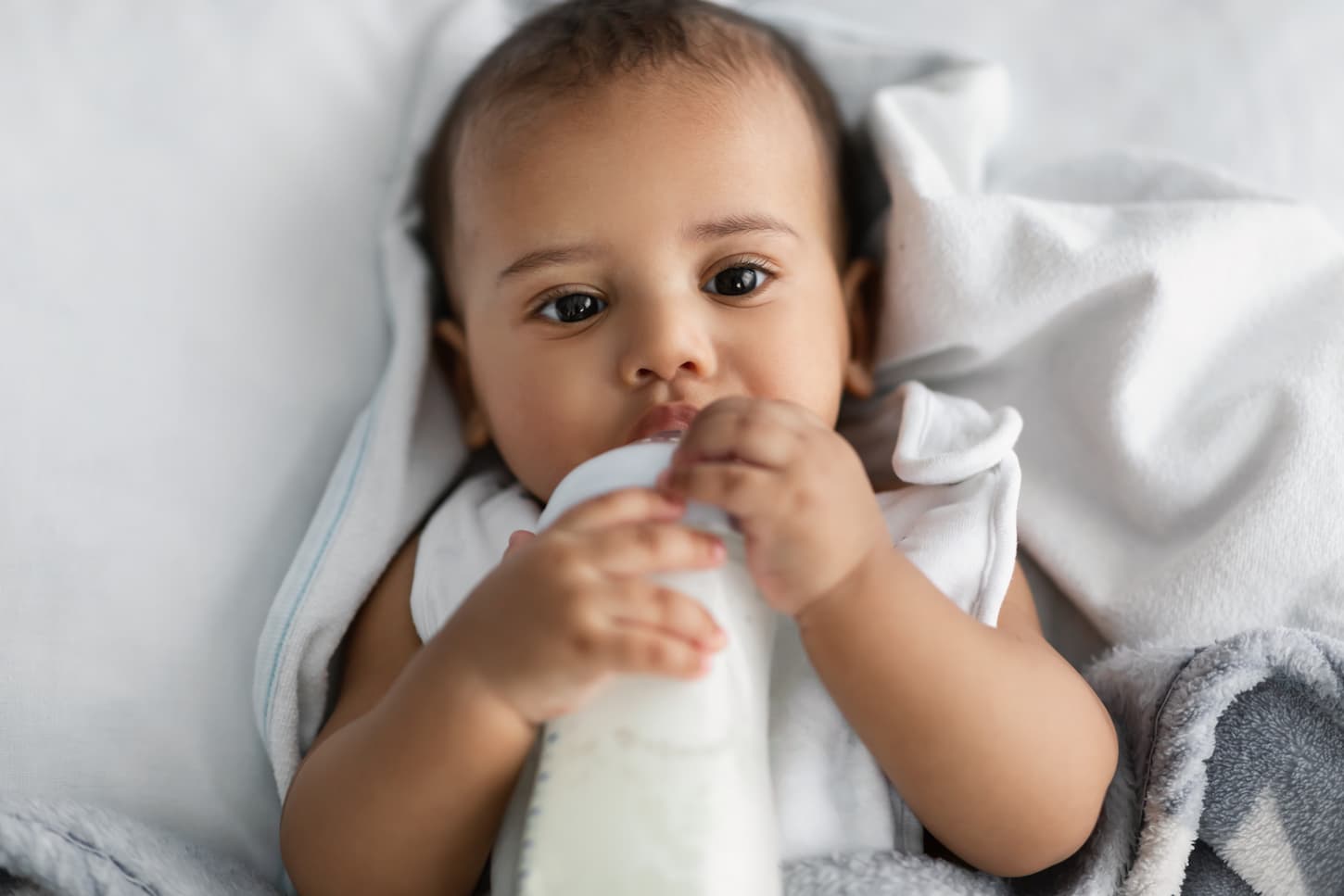
Key Takeaways
After researching and compiling information on gripe water, I have concluded that it is a safe and effective remedy for soothing colicky babies. While no scientific evidence supports its effectiveness, many parents swear by its ability to ease discomfort caused by gas and stomach troubles.
It is important to note that not all gripe water products are created equal. It is essential to choose a brand that is made with natural ingredients and free from harmful additives. For example, Mommy’s Bliss Gripe Water is a trusted brand that is NSF certified and loved by many mothers.
It is also important to use gripe water as directed and not to exceed the recommended dosage. Overuse can lead to adverse effects, such as diarrhea and dehydration.
Gripe water is a gentle and natural way to relieve fussy babies. As with any remedy, it is important to consult a healthcare provider before use, especially if your baby has any pre-existing medical conditions or is taking any medications.
Resources
Learning about parenting or sleep training techniques is important to learn from various reputable sources. These are the sources used in this article and our research to be more informed as parents.
- Adhisivam, B. (2012, June). Is Gripe Water Baby-Friendly? National Library of Medicine. Retrieved February 28, 2023, from https://www.ncbi.nlm.nih.gov/pmc/articles/PMC3356971/
- Blumenthal, I. (2000). The gripe water story. Journal of the Royal Society of Medicine, 93(4), 172–174. https://doi.org/10.1177/014107680009300404
- Donaldson-Evans, C. (2023, February 9). Gripe Water for Babies — What Is It and Is It Safe for Newborns? What to Expect. https://www.whattoexpect.com/first-year/gripe-water
- Gripe Water for Babies: Uses, Safety, and Effectiveness. (2022, August 24). Verywell Family. https://www.verywellfamily.com/is-gripe-water-safe-for-babies-4160748
- Higuera, V. (2021, October 21). How to Use Gripe Water to Soothe Your Baby. Healthline. https://www.healthline.com/health/parenting/gripe-water-for-babies
- Missouri Poison Center. (2022, May 19). Gripe Water – Missouri Poison Center. https://missouripoisoncenter.org/is-this-a-poison/gripe-water/
- Schlette, J. (2022, September 30). 7 Best Gripe Water Brands (2023 Reviews). Mom Loves Best. https://momlovesbest.com/gripe-water